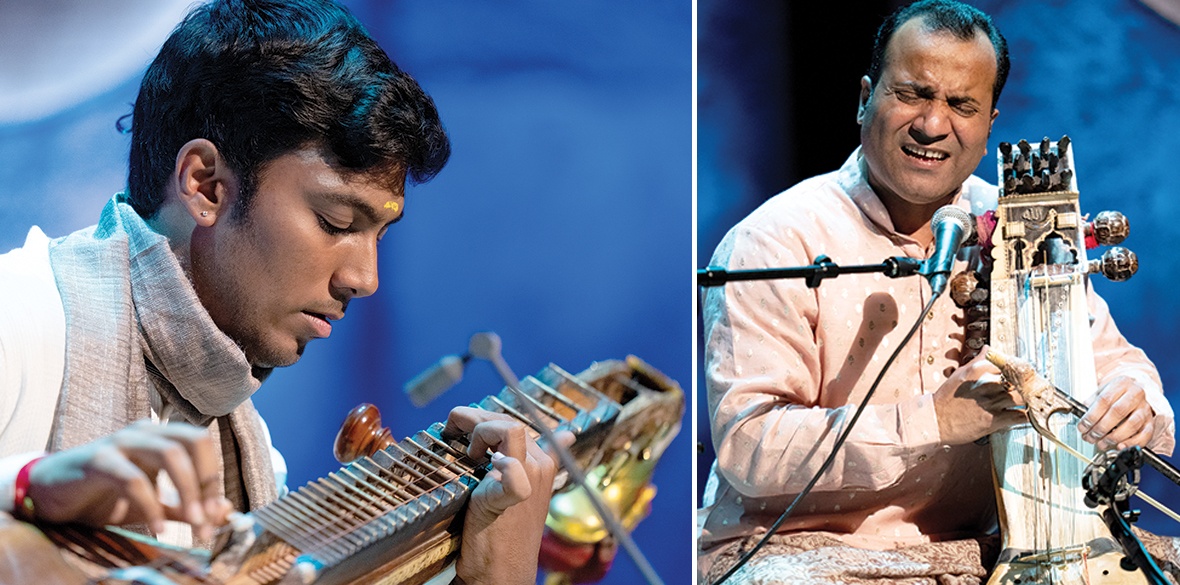This is the last article you can read this month
You can read more article this month
You can read more articles this month
Sorry your limit is up for this month
Reset on:
Please help support the Morning Star by subscribing here
Sabir Khan and Ramana Batachandran
The Darbar Festival
Barbican Centre
DARBAR is a musical scale within the classical Indian tradition, used as a basis for ragas, improvised pieces of music around a melodic framework.
But it refers also to the overall tradition and heritage of the music, a heritage the Darbar festival has now been bringing to London for 16 years.
The festival was founded in memory of Gurmit Singh Ju Virdee, a master tabla teacher born in the Punjab, and raised in Kenya, who moved to Southall in the 1970s where he would teach tabla classes to as many as 50 students at a time, before eventually settling in Leicester.
Virdee was a passionate and lifelong exponent of the Darbar tradition who helped break the classical tradition free from the straightjacket of exclusivity and superiority that he felt sometimes tainted it.
Ramana Batachandran, just 20 years old, felt the calling of this music since before he could walk, and has said that he is sometimes surprised by how naturally it came to him.
His first vocal lessons came from his mother, yet he is not from a family of professional musicians; his father is a computer programmer, and Ramana himself is currently studying computer science at degree level.
Playing the veena, a type of South Indian lute that to my untrained senses looks and sounds like a slightly smaller version of a sitar, he displays a phenomenal virtuosity far beyond his tender years, and the creativity is breathtaking.
Accompanied by Patri Satish Kumar on the mridangam — a double-headed drum similar to the dholak used particularly in Punjabi music — the combination, says my friend Sukant, evokes “the rolling beats of jungle overlaid with the sounds of Jimi Hendrix, Sonic Youth and Pavement.”
The speed and dexterity are incredible to watch and the sound is pure bliss.
Next up is Sabir Khan, playing the sarangi — a rectangular stringed instrument held vertically in the lap and played with a bow, and responsible for one of the most distinctive sounds in Indian classical music.
Sabir Khan’s whole life, it seems, has been steeped in Darbar. The set begins with an extended solo piece, getting us slowly enveloped in the warm bath of its timbres and meends (sliding movements) and gamaks (shakes).
This raga is almost bluesy in both its scale, and its tightly disciplined whimsicality, as it arches and twists and floats around each phrase. It takes its time and is almost mesmerically soothing, despite its frequent intensity.
It is as if I am being put in touch with parts of my soul I had neglected, and we are simply joyous to be reunited. I wonder if this has something to do with the use of “micronotes” — those notes in-between the 12 notes that make up each octave in the Western tradition — and the gliding and sliding between them, acknowledging and welcoming the existence of pitches that my ear is used to hearing spurned.
The literal translation of “raga” is “colouring,” referring to the colouring of mood and feeling the music aims to invoke. It certainly succeeds here tonight.
The Darbar festival continues at the Barbican this weekend: www.darbar.org.











